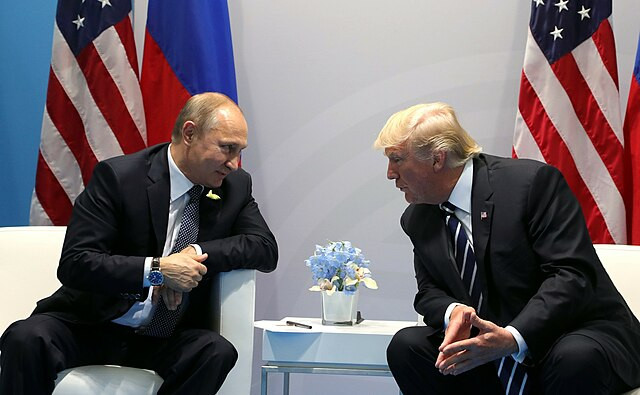Russia and Ukraine have agreed to suspend attacks in the Black Sea and on energy infrastructure under parallel agreements brokered by the United States, marking the first coordinated pause in hostilities since President Donald Trump returned to office. The deals, confirmed Tuesday after talks in Riyadh, include a 30-day ceasefire on energy targets and an agreement to "eliminate the use of force" at sea.
While both Moscow and Kyiv have committed to the truce, significant differences remain over implementation. Russia said the maritime ceasefire would only come into effect after the United States facilitates relief from international sanctions affecting its agricultural exports and banking sector.
"The United States will assist in restoring Russian agricultural and fertiliser exports to the global market, reducing the cost of maritime insurance, and expanding access to ports and payment systems to conduct such transactions," the Kremlin stated.
Ukrainian President Volodymyr Zelenskyy expressed support for the ceasefire but rejected any sanctions relief. "We believe that this is a weakening of position and sanctions," Zelenskyy said at a press briefing, referring to the concessions outlined in the U.S.-Russia agreement but absent in the U.S.-Ukraine statement.
Both parties released coordinated communiqués with five main points-four of which were identical-affirming commitments to safe navigation in the Black Sea and a halt to energy attacks. The key divergence came in the Russian version, which outlined Washington's pledge to advocate for the easing of financial restrictions on Russian agricultural trade, including reconnecting the Russian Agricultural Bank to the SWIFT payment system.
Ukraine maintains that the issue of territory was not discussed during the talks, despite President Trump saying, "We're talking about territory right now." Zelenskyy responded, "We are worried when they talk about us without us."
Russian Foreign Minister Sergei Lavrov said Moscow would require "clear guarantees" from Washington to proceed. "Given the sad experience of agreements with just Kyiv, the guarantees can only be the result of an order from Washington to Zelenskyy and his team to do one thing and not the other," Lavrov stated.
The ceasefire terms emerged following separate calls between Trump and Presidents Zelenskyy and Vladimir Putin. Trump's envoy, Steve Witkoff, raised further alarm among European officials when he said he did not "regard Putin as a bad guy."
Trump had proposed a 30-day comprehensive ceasefire, which Kyiv supported, but the Kremlin rejected a broader halt. Instead, Russia agreed to a targeted pause in hostilities centered on energy and maritime zones, effective March 18-the day of Trump and Putin's phone call.
Details of the truce include:
- Energy pause duration: 30 days
- Geographic focus: Black Sea and critical energy infrastructure
- Conditions: Russia demands easing of sanctions; Ukraine insists on continued restrictions
- Monitoring: Initially self-enforced, with potential for international oversight
Ukraine's Defense Minister Rustem Umerov warned that Kyiv would consider any movement of Russian military vessels beyond the eastern Black Sea "a violation and a threat," reinforcing Ukraine's right to self-defense.
Both countries have attacked each other's energy infrastructure since the early stages of the war. Russia has launched repeated strikes on Ukraine's power grid, while Ukraine has recently targeted Russian oil and gas facilities, citing their dual role in fueling the war and generating military income.
The ceasefire also follows the collapse of a previous U.N.-brokered grain export deal. Ukraine has managed to resume near pre-war levels of agricultural exports despite Russia's earlier naval blockade. However, ports in Odesa and elsewhere remain under threat from air strikes. Zelenskyy said the new agreement would prohibit such bombardments.
Russia further demanded that sanctions be lifted on port services and Russian-flagged vessels used to transport food and fertilizer. European nations, whose cooperation may be required to implement aspects of the sanctions relief, have yet to respond formally.
Zelenskyy said Ukraine expects "a further round of negotiations soon," although no date has been set. He added that Turkey or Saudi Arabia could potentially help enforce maritime security, while European allies may assist with monitoring energy infrastructure.




